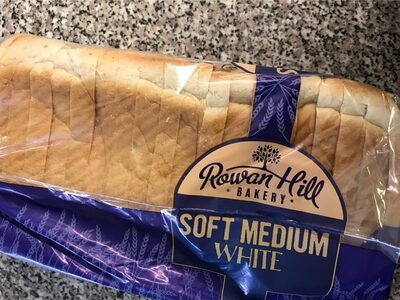
Barcode: 20675615
Soft Medium White
DOUBTFUL
📝 Reason: Islamic rulings differ on some components present. Their permissibility depends on factors like animal origin and processing aids not specified here.
🏷️ Category: Plant Based Foods And Beverages, Plant Based Foods, Cereals And Potatoes, Breads
📄 Certificates: None
Ingredients:
Details
Exploring the Halal Status of Soft Medium White
When it comes to dietary restrictions, especially in Islam, the Halal status of food products often comes into question. Today, we focus on the Soft Medium White—a popular bread choice that piques the interest of many halal consumers.
Halal Status Overview
The current Halal status of Soft Medium White is classified as DOUBTFUL. This designation stems from various components in its ingredients list, where some elements may not meet all Muslims’ dietary requirements. The permissibility of these ingredients can depend on factors such as animal origin and whether the processing methods are transparent.
Ingredient Breakdown
Soft Medium White contains a variety of ingredients, which we will detail below along with their Halal status:
- Fortified Wheat Flour (Wheat Flour) – Permissible in Islam. This component is essential as it serves as the main base of the bread.
- Calcium Carbonate – Permissible in Islam. This is a commonly used dietary supplement that helps in strengthening bones and is safe for Muslim consumption.
- Iron – Permissible in Islam. Iron fortification is necessary for combating anemia and is generally considered acceptable.
- Niacin – Permissible in Islam. Also known as Vitamin B3, it has health benefits and is halal.
- Thiamin – Permissible in Islam. This vitamin is crucial for converting carbohydrates into energy.
- Water – Permissible in Islam. Pure and simple, water is a basic component in almost all food items.
- Yeast – Permissible in Islam. Yeast helps the dough rise and is usually considered halal.
- Rapeseed Oil – Permissible in Islam. A common cooking oil that is typically allowed in halal diets.
- Salt – Permissible in Islam. An essential ingredient for flavor, salt is always halal.
- Soya Flour – Permissible in Islam. Made from soybeans, it is a rich source of protein.
- Spirit Vinegar – Permissible in Islam. Generally derived from the fermentation of spirits, its status is sometimes disputed.
- Emulsifiers (Mono- and Diacetyl Tartaric Acid Esters of Mono and Diglycerides of Fatty Acids) – DOUBTFUL. This ingredient can be derived from both halal and non-halal sources, thus causing uncertainty.
- Mono and Diglycerides of Fatty Acids – Permissible in Islam. Typically associated with fats and oils, these can be halal depending on the source.
- Preservative (Calcium Propionate) – Permissible in Islam. This agent is used to inhibit mold growth.
- Palm Oil – Permissible in Islam. Widely used in breads and is generally halal-friendly.
- Flour Treatment Agent – Permissible in Islam. This can refer to various agents, usually halal.
- Ascorbic Acid – Permissible in Islam. Vitamin C is a safe ingredient widely accepted.
Brand and Certification Context
Soft Medium White falls under the category of ‘Plant-Based Foods And Beverages, Plant-Based Foods, Cereals And Potatoes, Breads‘. Despite lacking a specific halal certification, the majority of its ingredients are approved as permissible in Islam. However, the use of certain emulsifiers does raise questions regarding processing practices.
Conclusion
In conclusion, while most ingredients in Soft Medium White are considered halal, the presence of certain emulsifiers that contribute to the uncertainty of its overall Halal status should prompt consumers to proceed with caution. It is always recommended for individuals to further research or check with the manufacturer for assurance regarding sourcing practices and specific Halal certifications.
